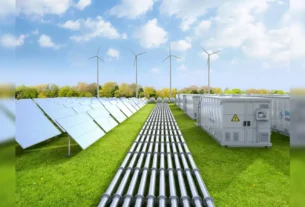In Short : The Goods and Services Tax (GST) on solar cells was reduced by the Indian government from 12% to 5%. This change is expected to drastically reduce project development costs in the renewable energy industry.
Encouraging Innovation and Strategic Growth
Faster adoption of solar technologies is encouraged by this tax reform, which lessens the financial strain on manufacturers and innovators. Utility-scale and rooftop projects will become more economical due to the reduced GST, allowing investors to expand projects with greater cost effectiveness.
Impact and Significance of Clean Energy
Reduced rates for end customers and a quicker uptake of sustainable energy are closely correlated with cheaper solar cells. The action increases India’s competitiveness against fossil fuels and fortifies its drive to meet its renewable energy ambitions.
Concerning India’s Push for Renewable Energy
With a heavy emphasis on solar, wind, and hybrid energy, India is one of the markets for renewable energy that is expanding the fastest. The government’s goal of 500 GW of renewable capacity by 2030 is accelerated by this GST reform, which also increases domestic manufacturing and project viability.




